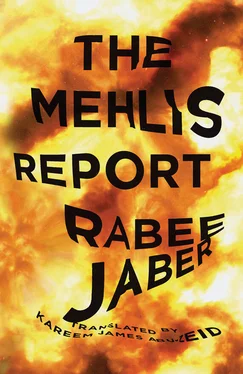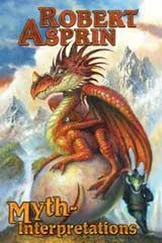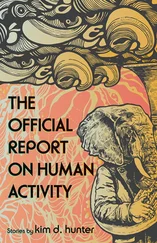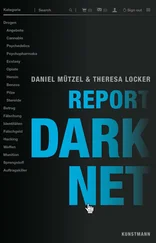My grandfather used to pick mulberries every morning during the summer. He’d drink a cup of bitter coffee and then head to the mulberry tree. The mulberry was in one corner of the garden, and the palm tree in the other. The dates of the palm were a brilliant red color in autumn. But he didn’t like dates as much as he liked mulberries. I was asleep. My grandfather had gotten up early that day, and my brother Saman was picking mulberries with him. My grandfather died gathering the white fruit that had fallen from the tree. I didn’t see him die. But Saman did.
One of our maids woke me: “Your grandfather’s dead! Get up, get up!”
I saw dead people and funerals during the war as well. I always thought death was the end of it. We went to church. We went to Mass on Sundays. My mother would light some candles, and so would Mary, and Emily, and if they asked me to I lit some as well. But I never thought about church or eternal life. I told myself I was still young, still at the start of everything. One day I’d become an old woman and wear a big red wool sweater and carry a red parasol — and on that day I’d think about such things. Or maybe I wouldn’t think about them even then. Why should I? You die, and your life is over. You’ve got long years to live before that happens, and in those years you should try to learn to be happy. That’s what I used to think. Was I wrong?
Tables fill the writing hall. Rows and rows of them. And on each table there’s a bundle of paper and some blue Bic pens. We sit and write. In the beginning — when I first arrived here — they informed me I was to write my entire life on a single page. That was what was required of me. I had all these pages on which to write, and I was to keep on trying, time after time. The drafts were to be put in the desk drawer. And I was to put the final clean copy on the desk and leave the Bic pen on top of it. It was difficult. I was used to fountain pens, and had never liked ballpoints. And then how could someone — even if they’d lived a life as short as mine — possibly write their entire life on a single page? What should I write, and what should I leave out? What things were important (family, friends, places), and what weren’t (food, movies, clothes)? How could I know what they were looking for? Where should I begin? Should I start with the year of my birth, and then move forward word by word, starting a new line each time I reach the end of one, until I finally reach the last corner of the page and write about the year of my death? Is that what was required? And if I did know the very first word (the year of my birth) and the very last word (the year of my death), did I know the many (the few) words between the two numbers, between the corner where life begins and the corner where life ends? But how could I know what to write and what to leave out?
Before I began, I thought a single page couldn’t possibly be enough. Then I started. And when I started, I ran into an unexpected difficulty: Which words should I use? Words wouldn’t say what I wanted to say. Days went by, then weeks, and months, and I started writing more and more. And I discovered one page wasn’t enough. I wrote and wrote and wrote. A single day of my life would fill a whole ream of paper. What should I do? How could I get rid of things? What should I leave out?
That lasted a long time, and then I began to cross things out. And I kept crossing things out until I had crossed out everything on all the pages. Now what? I had to start over. Slowly. This time I wrote half a page and then stopped. I stopped like someone who’d been rushing across the world. I was exhausted, I was panting and sweating, even though I’d only written a half page. I wanted water. My tongue was parched, and so was my throat. Where was the water? My cup was empty. Where was the woman who brings us water? I was so thirsty. The words moved like insects on the page. This was my whole life — half a page. And this intense thirst, as if I’d been eating sand while writing. I’d only written half a page, a handful of words, so why was I so thirsty, and why were my eyes burning? The woman came by in her blue gown. She filled my cup with water. I looked at the red dot on her nose and wanted to cry. I set the pen down on the page and wept. Did I weep? None of them saw me. Were they crying as well, each of them at their own table behind a white page, or a page covered in black?
People don’t cry here. I’ve only rarely seen someone cry. In other regions there’s wailing and the gnashing of teeth. The Province of Killers is extremely hot. When you enter that region, all the water flows out of your body and your limbs dry up. You could lose your arm while walking — just from the desiccation and the scorching sand. The water there is awful: red, stagnant, and rank. Small pools of it sometimes boil over. The killers drink only that water. That’s their eternal punishment. Drinking blood. Sweat pours out of them incessantly. There are towels on the shelves, and when they wipe off their chests, the towels turn blood-red. They drink from the boiling pools, and weep. They weep incessantly. Their fingers are blue: they’re constantly biting at them, as if they were sharpening pencils. They never eat anything. There’s no food in the Province of Killers. Only the awful red water.
If they stop drinking from the pools, thirst ravages them. When a body is that thirsty, it starts sucking water out of its eyes. The fluid in the eyeballs dries up, and you feel thorns being pushed into your sockets. That’s from the dehydration. Then you run to a pool of blood and dive in. The boiling blood doesn’t kill you. You weep and scream, and weep some more. Naked. Their clothes have been taken away from them. They live like beasts, like cattle. Worse. A lot worse. Cattle have good lives. They graze on the green grass; they drink sweet clean water; and if they were to look at the scenery, they’d see trees and mountains and villages. Cattle live good lives. The dwellers in the Province of Killers only ever see — night and day — pools filled with blood. They live in huts made of bones, on patches of dirt between the pools. The bones are old and foul-smelling. They sleep in those huts for an hour or less, until they’re woken by their thirst. And they jump into the pools once more.
We don’t know that region. It’s the law: no one here ever goes over there. It’s forbidden for a normal person to see such things. We know of them, but we’ve never seen them. We can even forget them if we want. But I — because I write — don’t want to forget. It’s important to keep everything in my head.
There are books here I cannot understand. They have strange illustrations, and are written in some foreign tongue. The illustrations combine human forms with those of plants. And the letters of that language look like rings and forceps and nails. No one can read those books.
Saman Yarid died on the evening of October 20, 2005. He was walking back from the Phoenicia Hotel after a two-hour swim. He did not reach his house on Ghandour al-Saad Street. As he passed by the Balthus restaurant, he felt — without any warning — a horrific pain in his chest. He stumbled, and fell on his face.
Where exactly is the Balthus located? And what would that change? The restaurant is located in commercial downtown Beirut, on the route from Parliament Square to the Phoenicia Hotel. It’s part of a commercial and residential complex still under construction: 1330 Park Avenue. Just a little distance away, another complex is rising up: Two Park Avenue. Avenue Plaza, a stately brown building, is right beside it, as are other buildings ringed with gardens. The buildings have not been finished yet, and the gardens are not yet visible; but the construction sites are busy day and night. Wooden boards surround the sites. There are illustrations on those boards, colored illustrations of the projects underway. There’s “Berytus Parks” at the intersection of Ahmad Shawqi Road and Park Avenue: buildings of concrete and glass. From the roof of the complex — if they ever finish it — you’ll be able to see this whole section of Solidere’s reconstruction project: the sea and all the seafront towers (the Hilton, The Four Seasons, Marina Tower, Platinum Tower, Beirut Tower). You’ll see the Phoenicia Hotel (pink, like the Monroe); and the Holiday Inn, which is still deserted, its windows black, its walls riddled with bullet-holes, half of it covered with a huge and brightly colored advertisement for a new residential development on Mount Lebanon (Abadiyya Hills: luxurious villas, gardens, swimming pools); and above the Holiday Inn, the Al-Murr Tower. No one fires shots from one tower to another now. The place is calm. You can see the alleys of Wadi Abu Jamil, you can see the tiled roofs, the villas beneath the Government Palace, the Palace’s tiles, and the dome of the Armenian church towering behind it — the church is dark black. You can also see the minarets of the Mohammad al-Amin Mosque: you can’t see its blue domes from here, but you can see its minarets and the gold glistening on their tips.
Читать дальше












